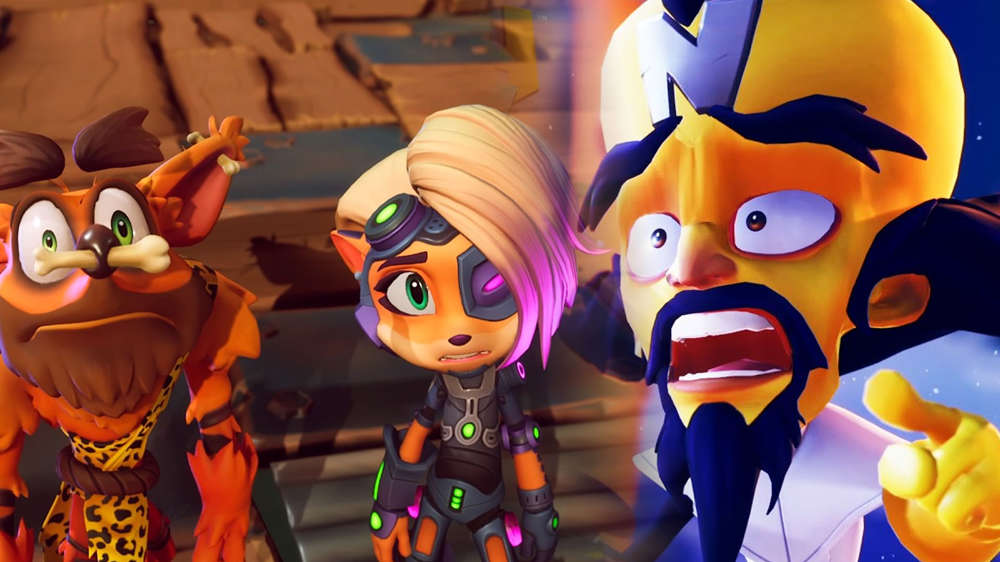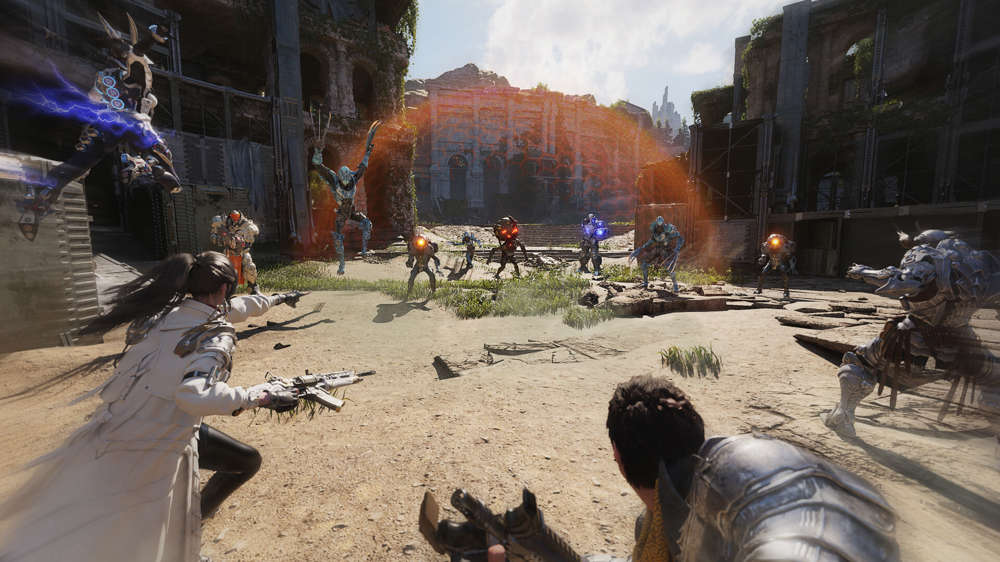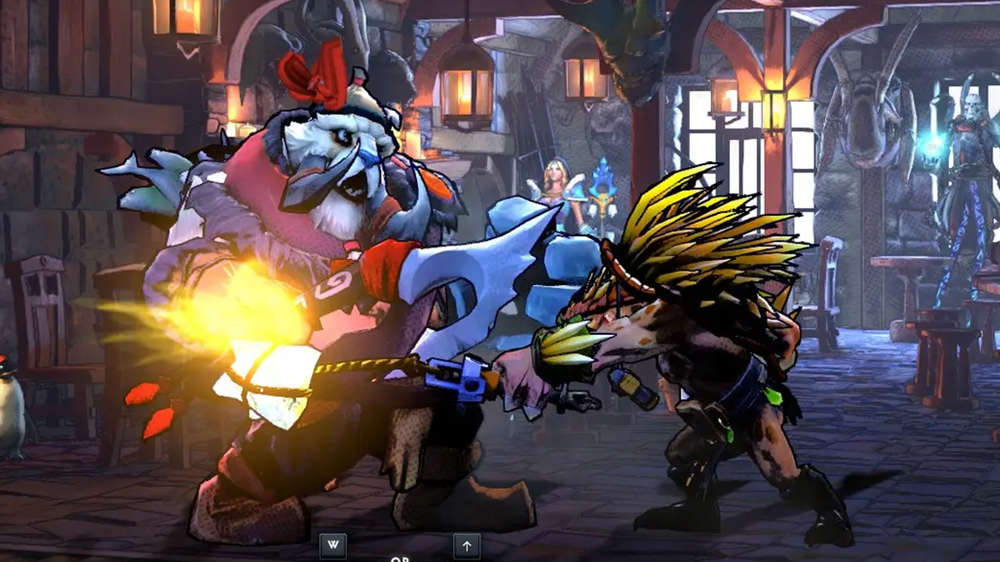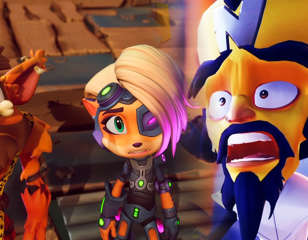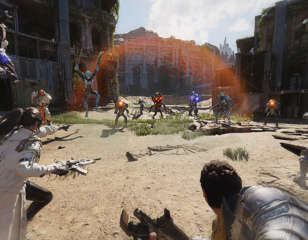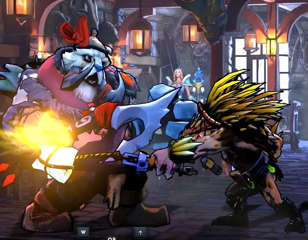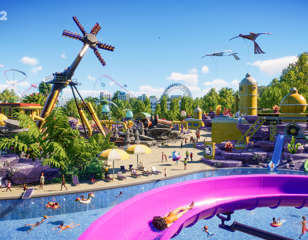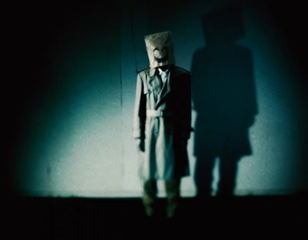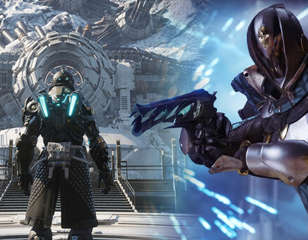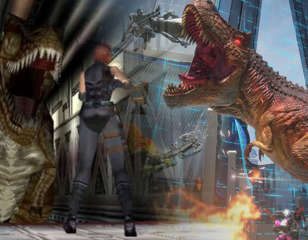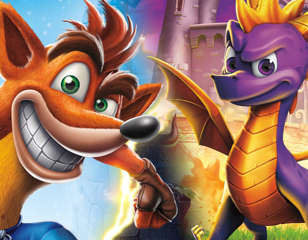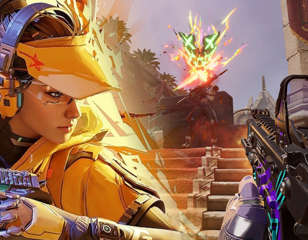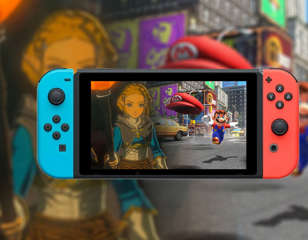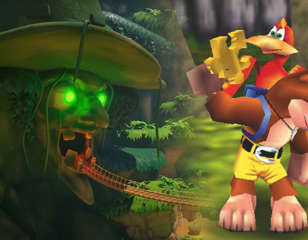We chatted to four roguelike deckbuilder devs to talk the genre's popularity & where it could go next
We chatted to the developers of some of the most exciting roguelike deckbuilders on Steam to dive into the process of making one.

Lloyd Coombes
19th Sep 2024 10:33
Image via Shiny Shoe, Akupara Games, Ghost Ship Publishing
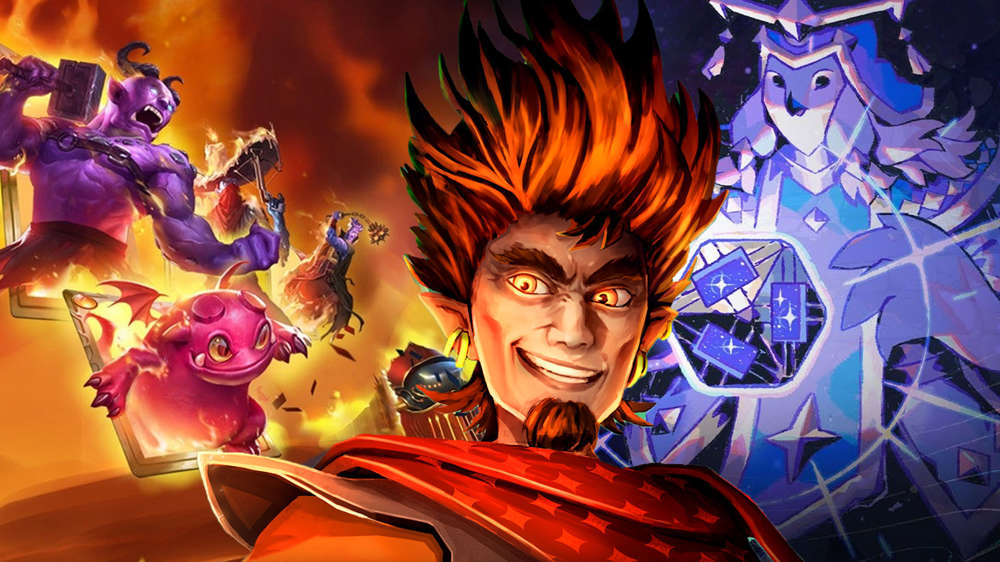
Recent years have seen an explosion in the popularity of the rogue-like deck builder. Slay The Spire nailed the formula back in 2017, and we've since seen the likes of Monster Train and Cobalt Core, followed by megahit Balatro.
It's a genre near and dear to my heart, and so I sat down with developers working on some of the most exciting new titles in the space to talk about what drew them to it in the first place, where it could go next, and why the genre has become so much more popular.
As part of the roundtable, I was able to speak to the following:
-
Kevin Chang, Game Director at Box Dragon, developing As We Descend
-
Tim Skafte, Co-Founder and Artist at Guidelight Games, developing SpellRogue
-
Leonardo Castanho, Game Designer at Little Leo Games, developing Astrea: Six-Sided Oracles
-
Andrew Krausnick, Game Director at Shiny Shoe, developing Monster Train and Inkbound
Humble beginnings

So, where does one start when gravitating towards such an exciting genre with fertile ground to build upon? As it happens, it’s often tabletop games - at least according to our limited sample size.
“I'm a tabletop design guy,” Chang tells me, noting he’d worked on a roguelike deck builder board game.
“So I think it was a natural fit to go over to roguelite deck building, after seeing the likes of Slay the Spire. If PC players are eager to play this genre as well, it makes sense to make it.”
Castanho had a similar experience. “I wanted to do a deckbuilder because I started working on board games, too” he explains.
“I wasn’t making money, I was just making prototypes and trying to understand how to become a game designer, so I tried a lot of things including non-deckbuilders. Astrea came from a cooperative game, a board game, but I was drawn to the deckbuilding mechanic, and I was inspired by Slay The Spire and Monster Train."
Krausnick, who worked on Monster Train, notes his curiosity was piqued by DreamQuest, an early inspiration for Slay The Spire.
“We did something internally called Hydra, which was a series of prototypes,” he reveals.
“We were just trying stuff out, and we did a few different card game ideas, and mixed it with units which kind of just felt like a fun concept. Persistent board state can be a lot of fun to play with, and we found that other deck builders didn’t have that.”
To Early Access, or not?
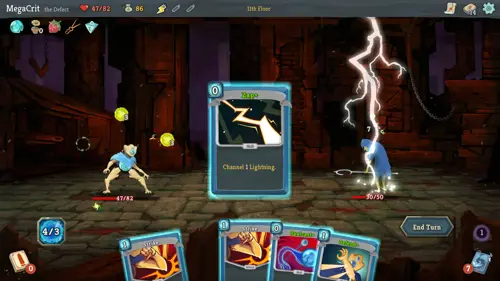
With many in the genre launching into Early Access for a variety of reasons, I was curious as to why some arrive in version 1.0, while others are available for testing.
“We started development very openly and just shared builds on Discord for a couple of years,” Tim Skafte explains.
“We did that for like 40 or 50 builds, something like that. And then we eventually got onto Steam, and then early this year, we released into Early Access. So we have always been very experimental and make big changes to our game.”
“We have rolled out big changes that some of the more casual, newer players can struggle with as we make sweeping changes to the game. You get the data, but you have to be considerate about bringing players along with you.”
“Monster Train was not Early Access, but Inkbound, our recent project, was, and we're in 1.0 now,” Krausnick explains.
“The ecosystem there is just changing in general. I think it's not necessarily for gameplay changes. People have feelings about those, and so on, and you can do that with internal testers. But it's for other things - we had a monetization system that we entirely removed, and you just can't test that with like playtesting.”
“It’s also very very hard to change in any kind of live game and people do treat early access like launches like a live game, and you just have to go into it expecting that.”
Castanho notes that his team weren’t entirely sure how to launch Astrea.
“We felt we didn’t have enough money, enough resources,” he explains. “We felt that if we went into early access with the resource we had, we would probably fail.”
“We preferred the risk of going in ‘blind’ because we were pretty much blind. When it comes to the balancing and mechanics, we didn’t have a lot of testers."
“I think it was a good decision because we trusted that the game was in good shape.”
Chang and the team at BoxDragon are still prepping to launch its title, As We Descend, and he’s still not entirely sure how it’ll roll out.
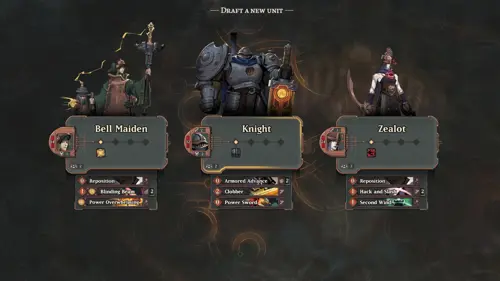
“Gamers do still expect a really great game out of everyone doing early access. And it makes sense. They're still exchanging money for your game. It's basically no different than a very rough 1.0, right?"
“But you're basically telling them that, ‘Hey! Your expectation should be that this is a game in development. We're going to do some community stuff. We're going to involve you in the ride basically so that we can build an even greater 1.0’, but that is kind of a promise."
“It’s not just like ‘we'll do an early access because we feel like it’. We saw it five years ago, maybe you were just throwing early access around but I think the sentiment has changed a bit. People have been burned by too many bad ones, so when you say you want to just do an early access they're like ‘Well, do you have the credentials to do it?’"
“If you're at the end of your runway, it's a ‘launch like it is or people deserve to be upset at you’", Krausnick says.
“I think it's justified probably that they are because that's not what early access is. That's not what they're signing up for. You're gonna be disappointed.”
The fantasy of being kicked down a ladder
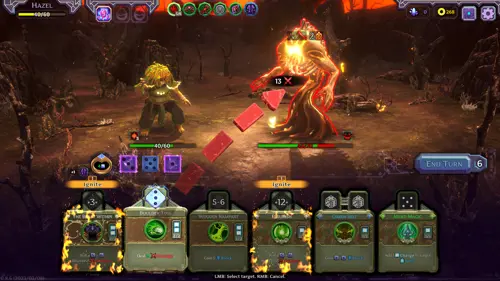
Much of the rogue-like genre’s “secret sauce” comes from a willingness to give players tools to build up their character, and I was curious as to how developers balance that with needing to kick players back to the start of the ladder at some point.
“I think that's player control,” Krausnick explains. “You have to feel like you could have done something different somewhere, even though there's a lot of randomness, you're like, ‘Oh, I built my deck. I made different choices. If I make different choices and that's the whole thing, that's what brings me back next time.’"
“If we can see people getting win streaks, but also losing a lot, we're like, great. There's a lot of depth there, there’s a lot of skill."
“I think the most successful rogue-likes, regardless of being a deck builder or not, are room-based or encounter-based so there’s always a fight that you can kind of section off and let the player be absolutely powerful for that one fight,” Chang adds.
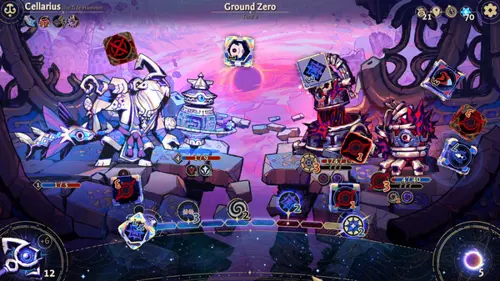
“They can go completely wild, destroy everything on the screen, explode the world, and that's fine because by the time they get to the next room, maybe they have an enemy that counters them and they realise they made a mistake.”
Games like Skafte’s Spellrogue and Castanho’s Astrea add another wrinkle in the form of random chance through dice rolls.
“For Spellrogue, we use a lot of data just to figure out things like power scaling”, Skafte explains.
“So data is, is very important to us but it's a single-player game at the end of the day, so the player supposed to go ‘hog wild’ every now and then. You need to leave an opportunity for the player to go crazy. But at the same time, that has to be earned in a way.”
Play along
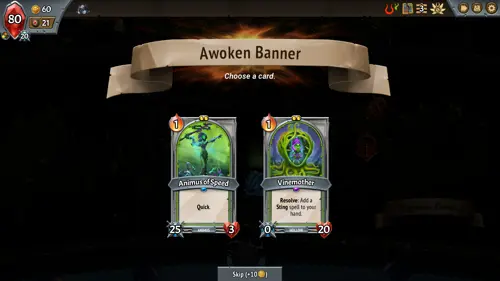
Part of the genre boom has been down to gamers seeing streamers jump into roguelikes and then try it themselves, but I was curious as to what the group thinks makes the genre so fun for streamers and viewers to enjoy together.
“I think it's such a perfect intersection of multiplayer, single player,” Chang says.
“It's a very symmetrical multiplayer, right? One person's in the pilot seat, but everyone else watches. If you make a game, that’s interesting to both watch and be the player of that kind of ideal, and roguelikes are that kind of space.”
So, with the increased popularity, is there a chance we see AAA publishers working to enter the genre?
“This might be one of the safest spaces, honestly,” Chang says.
“Out of all the things that AAA might crowd into, making a deck builder game that is run-based, and not narrative based, is not something they can just throw more muscle at.”
“I think it's anathema to the way AAA thinks about approaching games in terms of content, story creation, throwing more artists at things. People can feel the authenticity in your game, they can see if you actually love the genre or not."
“The Vampire Survivors team has been working on that game for years, but you would think a company like Riot, they’d be able to make a game like that overnight but they don’t - there’s just something about the way these games are made."
“League of Legends has Legends of Runeterra, and within there there’s Path of Champions, a standalone roguelike. But it’s not been that popular - why is it not a standalone game? Why does it feel like they just stacked it in the back corner of Legends of Runeterra?”
“They're like, ‘Hey, just make this thing’, whatever, we'll just put it in the back here. It's like they're almost not proud enough to show it off as a main game or they're worried, like, ‘What if it does better than Legends of Runeterra?’"
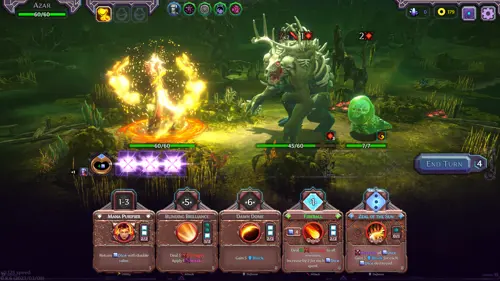
Skafte agrees, pointing to CD PROJEKT RED’s Gwent, a deck builder that showed promise but didn’t hit the levels it seemingly needed to.
“A AAA-level deck builder is going to be like the most published of the genre, right?”
Still, as a genre gets more crowded, it’s only natural that games will need to work harder to stand out.
“If I’m not trying to stand out, I don’t know why I’m doing it,” Castanho says. “If I didn’t feel that it was a new idea, I probably wouldn’t even try it.”
“We all want to be that big but also being big enough to keep going is always good,” Krausnick admits.
“You have to do it because you believe in it and you know what is going to make it good, you can't be cynical about it.”
“You can't try to reverse engineer it like ‘what if I did it with checkers? What is the checkers roguelike? There's no formula that you can just keep repeating. I mean, it's anti-formulaic by default, right?”
“I think it's really healthy to be ambitious, but at the same time it's also, at least in our case, healthy to be realistic about the chances of actually being the next Balatro or Vampire Survivors,” Skafte adds.
The next step
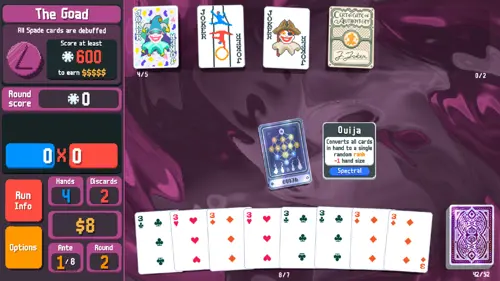
With Balatro taking all the plaudits this year by making a Poker-inspired roguelike deckbuilder, I was curious as to what the team can see being the next ‘big’ roguelike.
“I think it's going to be something out of left field to take the cop-out answer,” Chang jokes.
“It's going to be the Inscryption, the Balatro, the thing that you don’t expect. I think that's why we're all so happy to be in this space because it’s almost a designer's genre in so many ways of thinking about all the possibilities of what you could build in a rogue-lite deck builder.”
“You could make a real-time one, you could make a battle royale one, there's so many ways to build it,” he adds, while also pointing out the technical challenges.
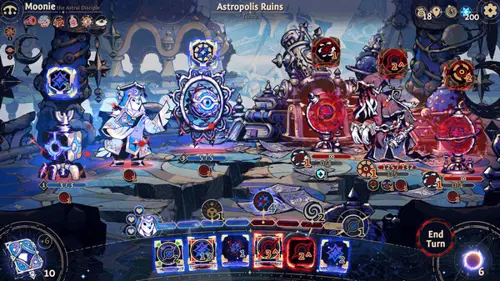
“I think people get into thinking about making card games because they're like ‘ah, it's so approachable’ but card games have quite a few requirements in terms of their modifier systems, mutators, all these state-based systems that to keep it sane and not just be a buggy mess that explodes all the time.”
“I'm heartened by the recent board game explosion,” Krausnick says. “Even though the space can feel constrained in some ways, especially as an outsider, there's so much variation.”
“Every year, there's new, fresh, exciting ideas that are still playing within a certain sandbox space that can feel small from an outsider, but as genre fans, like there's a big group of people who really love these games”.
“I think there's a lot of legs here and what the future looks like is not what games normally look like. It’s not like if PlayStation 6 comes out tomorrow we’re going to have different rogue-like deck builders.”
“The New York Times, are they going to do a deck builder?” he jokes.

About The Author
Lloyd Coombes
Lloyd is GGRecon's Editor-in-Chief, having previously worked at Dexerto and Gfinity, and occasionally appears in The Daily Star newspaper. A big fan of loot-based games including Destiny 2 and Diablo 4, when he's not working you'll find him at the gym or trying to play Magic The Gathering.
